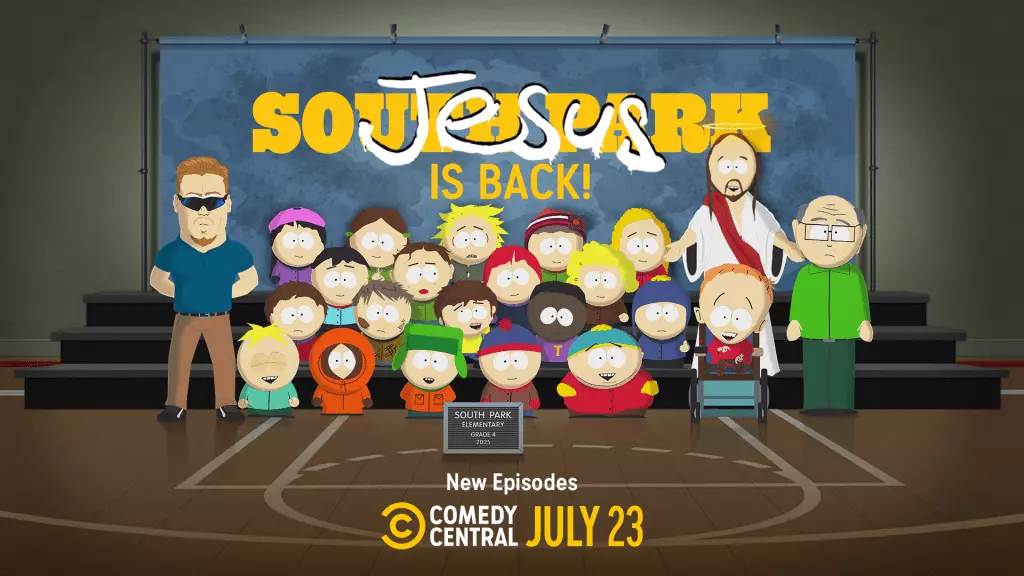South Park, an animated series that has captivated audiences with its sharp satire and irreverent humor, has been noticeably absent from our screens for over two years. Fans worldwide eagerly awaited Season 27, believing it would arrive in early July. However, the reality is far less straightforward. The premiere, initially scheduled for July 9, has now been pushed back to July 23, leaving a significant gap filled with frustration and speculation. This delay isn’t just a minor scheduling hiccup; it exposes deeper issues within the show’s distribution rights, corporate negotiations, and looming legal battles. Instead of simply enjoying new episodes, fans find themselves caught in a web of corporate maneuvering that threatens the very future of the series.
Streaming Rights: The Catalyst of Discontent
At the core of this drama lies the complicated landscape of streaming rights. South Park’s exclusive deal with HBO Max, valued at a staggering $500 million, expired recently. Yet, this expiration has not led to a straightforward renewal or replacement. Instead, multiple heavyweights—Warner Bros. Discovery (the parent company of HBO Max), Netflix, and Paramount Digital—all seem interested in securing the show’s streaming rights. This fragmentation sparks fears among fans and industry insiders alike: Could South Park become a nomad, bouncing from platform to platform in an endless game of commercial chess?
Furthermore, Paramount Global, the parent company of Comedy Central and co-owner of South Park Digital Studios, has expressed its desire to bring the series exclusively to Paramount+. In May, CEO Chris McCarthy stated unequivocally that South Park would be streaming on Paramount+ in the United States starting July. Yet, as of the scheduled release date, the show remains absent from the platform, generating confusion and distrust. The ambiguity exemplifies how corporate interests often overshadow the creative or fan-centric aspects of a beloved series, leading to friction and uncertainty.
The Legal Tightrope and Power Dynamics
Compounding this tension is a recent legal conflict involving the show’s creators, Trey Parker and Matt Stone. Alleged interference by Warner Bros. Discovery, aiming to secure shorter licensing terms or additional seasons outside of Paramount’s control, has escalated the situation. A legal letter detailed claims of attempts to coerce WBD into a five-year deal, contradicting the typical twelve-month exclusive window previously maintained by Parker and Stone. They have threatened legal action if their rights are compromised or if negotiations are manipulated to favor one corporate entity over another.
This dispute reveals a battle for control, not only over the show’s future but also over its monetary value and creative independence. Parker and Stone’s insistence on maintaining longer-term control reflects their understanding of South Park’s cultural significance and their reluctance to see it become a pawn in corporate power plays. Meanwhile, the existing episodes remain available across platforms, prolonging the limbo environment, with fans and stakeholders uncertain about what’s next.
Implications for Fans and the Industry
The ongoing saga illustrates the profound shifts occurring in media distribution. Popular shows like South Park are increasingly caught in complex licensing negotiations that threaten to undermine their stability. For fans, this means a lack of transparency, delays, and a loss of trust in their preferred platforms. For the industry, it exposes how lucrative streaming rights have become, often outweighing the value of the content itself.
Ultimately, the South Park controversy underscores a transformative period in entertainment rights management. The move towards non-exclusive agreements, while beneficial for corporations seeking flexibility, risks diluting the exclusivity and brand strength of flagship series. It also raises questions about whether the creative vision of the show’s creators will be respected amid these commercial debates.
In the end, the true casualty of this power struggle might be the show’s integrity and the passion of its dedicated fan base. As corporate interests clash and legal battles unfold behind the scenes, South Park remains at a crossroads—one that could redefine its future and impact the landscape of animated comedy for years to come.

